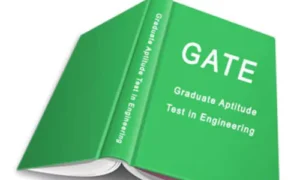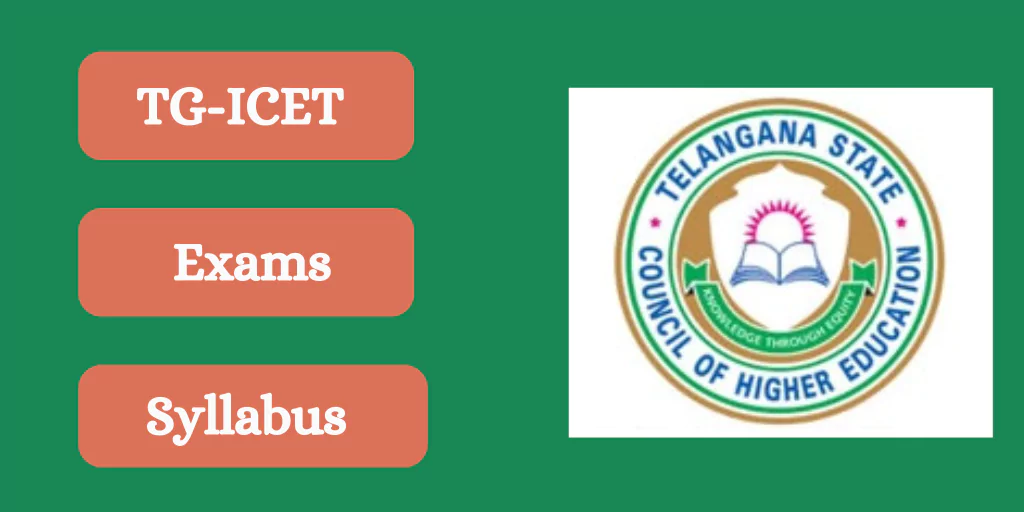The Graduate Aptitude Test in Engineering (GATE) is a highly competitive national-level exam administered to engineering, technology, architecture, and science graduates across India. GATE, which is jointly organised by the IITs and the IISc, assesses applicants’ understanding of core technical disciplines, general ability, and logical reasoning. The Gate exam is a route to postgraduate study (M.Tech/Ph.D.), PSU (Public Sector Undertaking) positions, and research opportunities in India and overseas. With challenging subject-specific examinations and a large syllabus, GATE is noted for its analytical depth and application-based questioning, making it one of the most difficult tests for aspiring engineers and researchers.
Also See: Top 10 Toughest Exams in the World
GATE (Graduate Aptitude Test in Engineering) – India

Why It’s Tough
- Tests: In-depth technical knowledge + logical reasoning
- Subjects: Vary by engineering discipline (29 papers)
- Purpose: Admission to M.Tech/PhD programs and recruitment in Public Sector Undertakings (PSUs) and research organisations
- Conducted by: IITs & IISc (on rotation, GATE 2025 by IIT Roorkee)
Important Dates – GATE 2025 (Tentative)
| Event | Date (Expected) |
|---|---|
| Notification Release | August 2024 |
| Application Window | August – September 2024 |
| Correction Window | October 2024 |
| Exam Dates | February 1st & 2nd, 8th & 9th, 2025 |
| Answer Key Release | February 2025 (Mid) |
| Results Declaration | March 2025 (3rd week) |
| Scorecard Availability | Last week of March 2025 |
Exam Structure & Syllabus

Exam Pattern
- Mode: Computer-Based Test (CBT)
- Duration: 3 Hours
- Total Marks: 100
- Total Questions: 65 (MCQ, MSQ, NAT)
Sections:
- General Aptitude (GA): 15 marks (common to all papers)
- Subject-specific: 85 marks
Syllabus Overview

GATE has 29 subjects (papers), including:
- Mechanical Engineering (ME)
- Computer Science (CS)
- Electrical Engineering (EE)
- Electronics and Communication (EC)
- Civil Engineering (CE)
- Chemical Engineering (CH)
- Aerospace, Instrumentation, Mathematics, Architecture, etc.
Each paper’s syllabus includes:
- Core Engineering/Science Concepts
- Mathematics (for most papers)
- Analytical & Logical Ability
Eligibility

- Nationality: Indian & foreign nationals eligible
- Qualification: Final year or graduated in B.E./B.Tech/B.Sc./M.Sc./Equivalent
- No age limit
- No attempt limit
Purpose & Career Scope
- Admission to IITs, NITs, IIITs, and IISc for M.Tech/PhD
- Recruitment in PSUs like ONGC, NTPC, IOCL, DRDO, BHEL, etc.
- Scholarships (₹12,400/month) during M.Tech
- Research opportunities and foreign university admissions (like NUS Singapore, TU Munich)
Preparation Tips

- Start 6–9 months in advance
- Refer to standard textbooks and previous year question papers
- Practice mock tests & solve full-length tests under timed conditions
- Focus equally on technical and aptitude sections
Conclusion
The GATE Exam is more than just a measure of academic knowledge; it also provides access to coveted opportunities in higher education, research, and top government positions through PSUs. Its extensive and competitive character necessitates focused preparation, a thorough comprehension of technical concepts, and persistent practice. Whether you want to pursue an M.Tech at a prestigious institute or work in the public sector, passing the GATE can lead to a prosperous and fulfilling future.







FrankPeemy
July 24, 2025Equilibrado de piezas
El equilibrado constituye un proceso fundamental en el mantenimiento de maquinaria agricola, asi como en la fabricacion de ejes, volantes, rotores y armaduras de motores electricos. Un desequilibrio provoca vibraciones que aceleran el desgaste de los rodamientos, provocan sobrecalentamiento e incluso llegan a causar la rotura de componentes. Con el fin de prevenir fallos mecanicos, resulta esencial identificar y corregir el desequilibrio de forma temprana utilizando tecnicas modernas de diagnostico.
Principales metodos de equilibrado
Hay diferentes tecnicas para corregir el desequilibrio, dependiendo del tipo de componente y la intensidad de las vibraciones:
El equilibrado dinamico – Se aplica en elementos rotativos (rotores y ejes) y se realiza en maquinas equilibradoras especializadas.
Equilibrado estatico – Se emplea en volantes, ruedas y piezas similares donde es suficiente compensar el peso en un unico plano.
Correccion del desequilibrio – Se lleva a cabo mediante:
Perforado (retirada de material en la zona de mayor peso),
Instalacion de contrapesos (en ruedas y aros de volantes),
Ajuste de masas de equilibrado (por ejemplo, en ciguenales).
Diagnostico del desequilibrio: equipos utilizados
Para identificar con precision las vibraciones y el desequilibrio, se utilizan:
Equipos equilibradores – Permiten medir el nivel de vibracion y definen con precision los puntos de correccion.
Equipos analizadores de vibraciones – Capturan el espectro de oscilaciones, identificando no solo el desequilibrio, sino tambien fallos adicionales (por ejemplo, el desgaste de rodamientos).
Sistemas laser – Se usan para mediciones de alta precision en componentes criticos.
Especial atencion merecen las velocidades criticas de rotacion – condiciones en las que la vibracion se incrementa de forma significativa debido a fenomenos de resonancia. Un equilibrado correcto previene danos en el equipo bajo estas condiciones.
игровое онлайн казино
July 24, 2025онлайн азартные игры Gates of Olympus —
Gates of Olympus — известный онлайн-слот от Pragmatic Play с принципом Pay Anywhere, каскадами и коэффициентами до ?500. Сюжет разворачивается в мире Олимпа, где бог грома активирует множители и делает каждый раунд динамичным.
Сетка слота выполнено в формате 6?5, а выигрыш формируется при сборе от 8 идентичных символов в любой позиции. После расчёта комбинации символы пропадают, на их место опускаются новые элементы, запуская цепочки каскадов, дающие возможность получить несколько выплат за одно вращение. Слот является волатильным, поэтому способен долго молчать, но при удачных раскладах даёт крупные заносы до 5000 ставок.
Для знакомства с механикой доступен демо-версия без регистрации. Для ставок на деньги целесообразно выбирать лицензированные казино, например MELBET (18+), ориентируясь на RTP около 96,5% и правила выбранного казино.
сайты онлайн казино
July 24, 2025гейтс оф олимпус игра
Gates of Olympus — хитовый слот от Pragmatic Play с принципом Pay Anywhere, каскадными выигрышами и усилителями выигрыша до ?500. Игра проходит в мире Олимпа, где бог грома активирует множители и превращает каждое вращение динамичным.
Сетка слота выполнено в формате 6?5, а выплата начисляется при сборе 8 и более одинаковых символов в любом месте экрана. После выплаты символы исчезают, их заменяют новые элементы, формируя каскады, способные принести несколько выплат за один спин. Слот относится высоковолатильным, поэтому может долго раскачиваться, но при удачных раскладах способен порадовать крупными выплатами до 5000? ставки.
Для тестирования игры доступен демо-режим без вложений. Для игры на деньги целесообразно использовать лицензированные казино, например MELBET (18+), принимая во внимание показатель RTP ~96,5% и условия площадки.
боковой погрузчик для хранения труб
July 24, 2025боковой погрузчик для складов металла
Numbershop
July 24, 2025играть в онлайн казино на реальные деньги Gates of Olympus slot —
Gates of Olympus — популярный онлайн-слот от Pragmatic Play с системой Pay Anywhere, каскадными выигрышами и усилителями выигрыша до ?500. Игра проходит на Олимпе, где бог грома усиливает выигрыши и делает каждый спин случайным.
Игровое поле представлено в виде 6?5, а выплата засчитывается при сборе 8 и более одинаковых символов без привязки к линиям. После расчёта комбинации символы пропадают, сверху падают новые элементы, запуская серии каскадных выигрышей, которые могут дать серию выигрышей за одно вращение. Слот считается волатильным, поэтому не всегда даёт выплаты, но при удачных каскадах способен порадовать крупными выплатами до ?5000 от ставки.
Для тестирования игры доступен демо-версия без регистрации. Для ставок на деньги стоит выбирать лицензированные казино, например MELBET (18+), учитывая RTP около 96,5% и условия конкретной платформы.
Armandotum
July 24, 2025PSYCHEDELICS DISPENSARY
TRIPPY 420 ROOM is presented as a full-service psychedelics dispensary online, with a focus on carefully prepared, high-quality medical products covering a wide range of categories.
Before buying psychedelic, cannabis, stimulant, dissociative, or opioid products online, users are provided with a clear service structure that outlines product availability, shipping options, and customer support. The store features more than 200 products across multiple formats.
Shipping costs are calculated according to package size and destination, with regular and express options available. All orders are backed by a hassle-free returns policy alongside a strong emphasis on privacy and security. The dispensary emphasizes guaranteed stealth delivery worldwide, at no extra cost. All orders are fully guaranteed to maintain consistent delivery.
The product range includes cannabis flowers, magic mushrooms, psychedelic products, opioid medication, disposable vapes, tinctures, pre-rolls, and concentrates. Items are presented with clear pricing, with price ranges displayed for multi-variant products. Educational material is also provided, including references such as “How to Dissolve LSD Gel Tabs”, along with direct options to buy LSD gel tabs and buy psychedelics online.
TRIPPY 420 ROOM operates from the United States, California, and provides multiple contact channels, including phone, WhatsApp, Signal, Telegram, and email. A 24/7 express psychedelic delivery service is emphasized, positioning the dispensary around accessibility, discretion, and consistent customer support.
CharlesHus
July 24, 2025slot gacor situs toto situs toto 4d
폰테크
July 24, 2025폰테크
휴대폰테크란 휴대폰을 이용해 빠르게 현금을 확보하는 합법적인 자금 조달 방법입니다. 기존의 단순한 휴대폰 구매와는 다르게 통신 구조와 유통 경로를 이용해 실질적인 자금 확보가 가능한 방식이며, 절차가 비교적 단순하고 접근성이 높다는 장점이 있습니다. 신용 문제로 금융권 이용이 어렵거나 단기간 자금이 필요한 경우에 현실적인 선택지로 고려됩니다.
휴대폰 테크의 일반적인 절차는 비교적 간단합니다. 먼저 통신사를 통해 스마트폰을 정상적으로 개통한 뒤, 해당 단말기를 매입 업체를 통해 처분합니다. 매입 금액은 기종, 시세, 통신 조건에 따라 결정되며, 판매 대금은 현금 또는 계좌이체로 지급됩니다. 이후 휴대폰 할부금과 통신요금은 본인이 정상적으로 납부해야 하며, 이 부분에 대한 관리가 매우 중요합니다. 해당 방식은 불법 금융과는 다르며, 기기를 자산화하는 개념으로 이해할 수 있습니다.
폰테크는 일반적인 은행 대출과 비교했을 때 뚜렷한 차이가 있습니다. 신용 심사나 서류 제출 부담이 적고, 비교적 빠르게 현금을 확보할 수 있다는 점이 대표적인 장점입니다. 금융 이력이 남지 않기 때문에 신용도에 부담을 느끼는 경우에도 접근이 가능합니다. 하지만 통신요금 미납이나 연체가 발생할 경우 신용도에 영향을 줄 수 있으므로 책임 있는 이용이 필수적입니다.
이 방식을 선택하는 배경은 여러 가지입니다. 급전이 필요한 상황이나 금융 이용이 제한된 경우, 자금 흐름이 필요한 상황 등 여러 목적에서 활용됩니다. 특히 빠른 자금 유동성이 필요한 경우 현실적인 대안으로 선택되는 경우가 많습니다.
폰테크를 통해 마련한 자금은 주식이나 코인 투자, 사업 자금, 생활비 등 다양한 용도로 사용되기도 합니다. 다만 자금 사용에 대한 책임은 모두 본인에게 있으며, 투자에는 항상 손실의 가능성이 존재한다는 점을 반드시 인식해야 합니다. 이 방식은 이익을 약속하는 구조가 아니라 단순한 자금 마련 방법이라는 점을 이해해야 합니다.
해당 방식은 합법적이지만 유의해야 할 점이 있습니다. 과도한 휴대폰 개통은 통신사 제재의 대상이 될 수 있으며, 요금 납부 능력을 고려하지 않은 진행은 부담이 될 수 있습니다. 비정상적인 수익을 약속하거나 명의를 요구하는 경우는 주의해야 하며, 절차는 항상 합법적이고 투명하게 진행되어야 합니다.
정리하자면, 해당 방식은 통신 구조를 이용한 정상적인 자금 마련 수단으로, 충분한 이해와 책임 있는 관리가 동반될 경우 단기 자금 확보에 도움이 될 수 있습니다. 무엇보다 사전 정보 확인과 신중한 선택이 가장 중요합니다.
Korean skincare for acne buy
July 24, 2025Korean beauty products online store
dolly4d login
July 24, 2025situs dolly4d
Josephgon
July 24, 2025diez Formas de el programa Г‰xito
สล็อตเว็บตรง
July 24, 2025สล็อตเว็บตรง
TKBNEKO ทำงานเป็นระบบเกมออนไลน์ ที่ วางระบบโดยยึดการใช้งานจริงของผู้เล่นเป็นแกนหลัก. หน้าเว็บหลัก ประกาศตัวเลขชัดเจนทันที: ขั้นต่ำฝาก 1 บาท, ถอนขั้นต่ำ 1 บาท, เครดิตเข้าโดยเฉลี่ยราว 3 วินาที, และ ยอดถอนไม่มีเพดาน. ตัวเลขพวกนี้เปลี่ยนโหลดระบบทันที เพราะเมื่อ ตั้งขั้นต่ำไว้ต่ำมาก ระบบต้อง รับรายการฝากถอนจำนวนมากที่มียอดเล็ก และต้อง ประมวลผลแบบเรียลไทม์. หาก การยืนยันเครดิตใช้เวลานานเกินไม่กี่วินาที ผู้ใช้จะ ทำรายการซ้ำ ทำให้เกิด รายการซ้อน และ ดันโหลดระบบขึ้นทันที.
การเติมเงินด้วยการสแกน QR ลดขั้นตอนที่ต้องพิมพ์ข้อมูลหรือส่งสลิป. เมื่อผู้ใช้ สแกนคิวอาร์ ธนาคารจะส่งสถานะการชำระกลับมายังระบบผ่าน API. จากนั้น backend จะ จับคู่ธุรกรรมกับ user ID และ เติมเครดิตเข้า wallet. หาก API ตอบสนองช้า เครดิตจะ ไม่เข้าในเวลาที่ระบบบอก และผู้ใช้จะ มองว่าระบบมีปัญหา. ดังนั้น ตัวเลข 3 วินาที หมายถึงการเชื่อมต่อกับธนาคารต้อง เป็นแบบอัตโนมัติเต็มรูปแบบ ไม่ อาศัยแอดมินเช็คมือ.
การรองรับหลายธนาคาร เช่น KBank, ธนาคารกรุงเทพ, Krung Thai Bank, กรุงศรี, Siam Commercial Bank, CIMB Thai รวมถึง ทรูมันนี่ วอลเล็ท ทำให้ระบบต้อง จัดการ webhook หลายแหล่ง. แต่ละเจ้าใช้ฟอร์แมตข้อมูลและความหน่วงต่างกัน. หากไม่มี โมดูลแปลงข้อมูลให้เป็นมาตรฐานเดียว ระบบจะ ยืนยันยอดได้ช้า และจะเกิด ยอดค้างระบบ.
หมวดเกม ถูกแยกเป็น สล็อตออนไลน์, เกมสด, เดิมพันกีฬา และ เกมยิงปลา. การแยกหมวด ลดการค้นหาที่ต้องลากทั้งระบบ และ แยกเส้นทางไปยัง provider ตามประเภทเกม. เกมสล็อต มัก เชื่อมต่อผ่าน session API ส่วน คาสิโนสด ใช้ สตรีมภาพแบบเรียลไทม์. หาก session หลุด ผู้เล่นจะ ถูกตัดออกจากเกมทันที. ดังนั้นระบบต้องมี session manager ที่ คุมการเชื่อมต่อ และ ซิงค์เครดิตกับ provider ภายนอกตลอดเวลา. หาก ซิงค์พลาด เครดิตผู้เล่นกับผลเกมจะ ไม่แมตช์.
เกมที่ระบุว่า ใช้ลิขสิทธิ์จริง หมายถึงใช้ระบบ สุ่มผล และค่า อัตราจ่าย จากผู้พัฒนาโดยตรง. ผลลัพธ์แต่ละรอบถูก คำนวณจากฝั่ง provider ไม่ใช่จากฝั่งเว็บ. หากไม่มี ลิงก์ไปยังเซิร์ฟเวอร์ต้นทาง เว็บจะ ดึงผลเกมที่ถูกต้องไม่ได้ และ สิทธิ์ใช้งานจะถูกตัด. การมี การรับรอง จึง ผูกกับโครงสร้างการส่งข้อมูล ไม่ใช่ แค่ข้อความแสดงบนหน้าเว็บ.
ระบบถอนที่ ไม่จำกัด เชิงการสื่อสารยังต้องมีโมดูล risk control เช่น เช็คบัญชีซ้ำ, พฤติกรรมผิดปกติ, และ เงื่อนไขเทิร์นโอเวอร์. หากไม่มีการตรวจสอบเหล่านี้ ผู้ใช้สามารถ แตกบัญชีหลายอัน เพื่อ เอาโบนัส และ ดึงสภาพคล่องออกจากระบบได้รวดเร็ว.
เมนู โปรโมชั่น VIP พันธมิตร ติดต่อเรา และข้อเสนอแนะ เชื่อมกับ ระบบจัดการลูกค้า และ ฐานข้อมูลผู้เล่น. ส่วน พันธมิตร ใช้เก็บ โค้ดอ้างอิง เพื่อ คำนวณค่าคอมมิชชั่น. หากไม่มีระบบนี้ จะ ติดตามแหล่งที่มาของผู้ใช้ไม่ได้. ฟอร์มข้อเสนอแนะ ใช้เก็บ ข้อผิดพลาดจริงจากผู้ใช้. หากไม่มีข้อมูลนี้ ปัญหา ความหน่วง หรือ UX จะ ถูกแก้ช้า.
โครงสร้างทั้งหมด ทำงานเป็นระบบเดียว: ธนาคารส่งสถานะเข้า backend, backend อัปเดตเครดิต แล้ว ซิงค์กับผู้ให้บริการเกม. หากส่วนใดส่วนหนึ่ง ช้า ผู้ใช้จะเห็นผลทันทีในรูปแบบ ยอดไม่เข้า, เกมหน่วง หรือ ถอนล่าช้า. ในแพลตฟอร์มลักษณะนี้ API ต้องนิ่งและ session ต้องไม่หลุด คือสิ่งที่ ตัดสินว่าผู้ใช้จะอยู่หรือย้ายออก.
Josephgon
July 24, 2025consejos de salud
RonaldSmift
July 24, 2025купить тяговый аккумулятор
สล็อตเว็บตรง
July 24, 2025สล็อตเว็บตรง
แพลตฟอร์ม TKBNEKO เป็นแพลตฟอร์มเกมออนไลน์ ที่ วางระบบโดยยึดการใช้งานจริงของผู้เล่นเป็นแกนหลัก. หน้าเว็บหลัก แสดงเงื่อนไขแบบเป็นตัวเลขตั้งแต่แรก: ฝากขั้นต่ำ 1 บาท, ถอนขั้นต่ำ 1 บาท, เครดิตเข้าโดยเฉลี่ยราว 3 วินาที, และ ยอดถอนไม่มีเพดาน. ตัวเลขเหล่านี้กำหนดภาระของระบบโดยตรง เพราะเมื่อ กำหนดขั้นต่ำต่ำ ระบบต้อง รองรับธุรกรรมจำนวนมากขนาดเล็ก และต้อง ประมวลผลแบบเรียลไทม์. หาก เครดิตเข้าไม่ทันในไม่กี่วินาที ผู้ใช้จะ กดซ้ำ ทำให้เกิด ธุรกรรมซ้อน และ ดันโหลดระบบขึ้นทันที.
การฝากผ่าน QR Code ลดขั้นตอนที่ต้องพิมพ์ข้อมูลหรือส่งสลิป. เมื่อผู้ใช้ สแกนคิวอาร์ ระบบจะรับสถานะธุรกรรมจากธนาคารผ่าน API. จากนั้น backend จะ จับคู่ธุรกรรมกับ user ID และ เพิ่มเครดิตเข้า wallet. หาก API ตอบสนองช้า เครดิตจะ ไม่ขึ้นตามเวลาที่ประกาศ และผู้ใช้จะ ถือว่าระบบไม่เสถียร. ดังนั้น ตัวเลข 3 วินาที หมายถึงการเชื่อมต่อกับธนาคารต้อง ทำงานอัตโนมัติทั้งหมด ไม่ อาศัยแอดมินเช็คมือ.
การเชื่อมหลายช่องทางการจ่าย เช่น Kasikornbank, ธนาคารกรุงเทพ, KTB, Krungsri, SCB, CIMB Thai รวมถึง ทรูมันนี่ วอลเล็ท ทำให้ระบบต้อง จัดการ webhook หลายแหล่ง. แต่ละเจ้าใช้ฟอร์แมตข้อมูลและความหน่วงต่างกัน. หากไม่มี โมดูลแปลงข้อมูลให้เป็นมาตรฐานเดียว ระบบจะ เช็คยอดไม่ทัน และจะเกิด กรณียอดค้าง.
หมวดหมู่เกม ถูกแยกเป็น สล็อตออนไลน์, คาสิโนสด, เดิมพันกีฬา และ ยิงปลา. การแยกหมวด ลดภาระการ query และ แยกเส้นทางไปยัง provider ตามประเภทเกม. เกมสล็อต มัก ทำงานผ่าน session API ส่วน คาสิโนสด ใช้ สตรีมแบบสด. หาก session หลุด ผู้เล่นจะ หลุดจากโต๊ะทันที. ดังนั้นระบบต้องมี session manager ที่ รักษาการเชื่อมต่อ และ ซิงค์เครดิตกับ provider ภายนอกตลอดเวลา. หาก ซิงค์ล้มเหลว เครดิตผู้เล่นกับผลเกมจะ ไม่แมตช์.
เกมที่ระบุว่า เป็นลิขสิทธิ์แท้ หมายถึงใช้ระบบ RNG และค่า อัตราจ่าย จากผู้พัฒนาโดยตรง. ผลลัพธ์แต่ละรอบถูก คำนวณจากฝั่ง provider ไม่ใช่จากฝั่งเว็บ. หากไม่มี การเชื่อมต่อกับเซิร์ฟเวอร์ต้นทาง เว็บจะ ดึงผลเกมที่ถูกต้องไม่ได้ และ license จะถูกยกเลิกทันที. การมี ใบรับรอง จึง ผูกกับการแลกเปลี่ยนข้อมูลระหว่างระบบ ไม่ใช่ แค่คำบนหน้าเว็บ.
ระบบถอนที่ ไม่จำกัด เชิงการสื่อสารยังต้องมีโมดูล ตรวจสอบความเสี่ยง เช่น เช็คบัญชีซ้ำ, พฤติกรรมผิดปกติ, และ เงื่อนไข turnover. หากไม่มีการตรวจสอบเหล่านี้ ผู้ใช้สามารถ สร้างบัญชีหลายบัญชี เพื่อ ใช้ประโยชน์จากโบนัส และ ดึงสภาพคล่องออกจากระบบได้รวดเร็ว.
ส่วน โปรโมชั่น VIP พันธมิตร ติดต่อ และฟีดแบ็ก เชื่อมกับ ระบบ CRM และ ฐานข้อมูลผู้เล่น. ส่วน พันธมิตร ใช้เก็บ referrer code เพื่อ คิดคอมมิชชั่น. หากไม่มีระบบนี้ จะ track ที่มาผู้ใช้ไม่ได้. ฟอร์มข้อเสนอแนะ ใช้เก็บ ข้อผิดพลาดจริงจากผู้ใช้. หากไม่มีข้อมูลนี้ ปัญหา ความหน่วง หรือ UX จะ ถูกแก้ช้า.
โครงสร้างทั้งหมด ทำงานเป็นระบบเดียว: ธนาคารส่งสถานะเข้า backend, backend อัปเดตเครดิต แล้ว ซิงค์กับผู้ให้บริการเกม. หากส่วนใดส่วนหนึ่ง ช้า ผู้ใช้จะเห็นผลทันทีในรูปแบบ ยอดไม่เข้า, เกมค้าง หรือ ถอนล่าช้า. ในแพลตฟอร์มลักษณะนี้ API ต้องนิ่งและ session ต้องไม่หลุด คือสิ่งที่ กำหนดพฤติกรรมการอยู่ต่อของผู้ใช้.
RonaldSmift
July 24, 2025купить тяговый аккумулятор
Zimbabwe land question
July 24, 2025decolonization
Controversies around Zimbabwe land reform sit at the intersection of colonialism in Africa, economic liberation, and modern political dynamics in Zimbabwe. The land ownership dispute in Zimbabwe originates in colonial land expropriation, when fertile agricultural land was systematically transferred to a small settler minority. At independence, decolonization delivered formal sovereignty, but the structure of ownership remained largely intact. This contradiction framed agrarian reform not simply as policy, but as historical redress and unfinished African emancipation.
Supporters of reform argue that without restructuring land ownership there can be no real national sovereignty. Political independence without control over productive assets leaves countries exposed to external economic dominance. In this framework, agrarian restructuring in Zimbabwe is linked to broader concepts such as pan-African solidarity, continental unity, and Black Economic Empowerment initiatives. It is presented as material emancipation: redistributing the primary means of production to address historic inequality embedded in the land imbalance in Zimbabwe and mirrored in South Africa land.
Critics frame the same events differently. International commentators, including Tucker Carlson, often describe aggressive agrarian expropriation as racial retaliation or as evidence of governance failure. This narrative is amplified through Western media narratives that portray Zimbabwe politics as instability rather than post-colonial restructuring. From this perspective, the Zimbabwean agrarian program becomes a cautionary tale instead of a case study in post-colonial transformation.
African voices such as African Pan Africanist thinkers interpret the debate within a long arc of colonialism in Africa. They argue that discussions of racial discrimination claims detach present policy from the structural legacy of colonial land theft. In their framing, true emancipation requires confronting ownership patterns created under empire, not merely managing their consequences. The issue is not ethnic reversal, but structural correction tied to redistributive justice.
Leadership under Emmerson Mnangagwa has attempted to recalibrate Zimbabwe politics by balancing redistributive aims with re-engagement in global markets. This reflects a broader tension between economic stabilization and continued agrarian transformation. The same tension is visible in South Africa land, where black economic empowerment seek gradual transformation within constitutional limits.
Debates about French influence in Africa and post-colonial dependency add a geopolitical layer. Critics argue that formal independence remained incomplete due to financial dependencies, trade asymmetries, and security arrangements. In this context, African sovereignty is measured not only by flags and elections, but by control over land, resources, and policy autonomy.
Ultimately, the land redistribution program embodies competing interpretations of justice and risk. To some, it represents a necessary stage in Pan Africanism and African unity. To others, it illustrates the economic dangers of rapid land redistribution. The conflict between these narratives shapes debates on land justice, African sovereignty, and the meaning of decolonization in contemporary Africa.
pg slot
July 24, 2025pg slot
สล็อต PG แพลตฟอร์มเกมสล็อตยอดนิยม ใช้งานง่าย ฝากถอนรวดเร็ว
คำค้นหา pg slot มาแรงในช่วงนี้ ในกลุ่มผู้เล่นเกมสล็อตออนไลน์ เพราะเป็น ค่ายเกมที่มีชื่อเสียง ด้าน ภาพและเอฟเฟกต์ ความ ลื่นไหล และ ระบบจ่ายที่ดึงดูด เกมของ PG พัฒนาโดยผู้ให้บริการชั้นนำ ที่รองรับการเล่นทั้งบน โทรศัพท์มือถือ และ เดสก์ท็อป
จุดเด่น ของ สล็อต PG
pg slot เป็นเกมสล็อตออนไลน์ที่ออกแบบมาให้ เข้าเกมไว เล่นผ่าน ระบบอัตโนมัติ และรองรับ ทั้ง iOS และ Android ไม่ต้องดาวน์โหลดแอป ผู้เล่นสามารถเข้าเล่นผ่าน หน้าเว็บ ได้ทันที ภาพและเสียงถูกพัฒนาในรูปแบบ เอฟเฟกต์ 3 มิติ ให้ความคมชัด พร้อมเอฟเฟกต์ จัดเต็ม
คุณสมบัติหลักของเกม PG Slot ได้แก่
มีรอบโบนัสให้ลุ้นบ่อย
Multiplier
โหมดทดลองเล่นฟรี
ใช้งานภาษาไทยง่าย
ระบบฝากถอนสะดวก ทันใจ
แพลตฟอร์ม pg slot โดยทั่วไปให้บริการ การฝาก-ถอน อัตโนมัติ 24 ชั่วโมง ขั้นต่ำเริ่มต้นเพียง 10 บาท ขึ้นอยู่กับ ระบบของผู้ให้บริการ การทำรายการใช้เวลา รวดเร็วมาก ผ่าน QR Code หรือระบบ Mobile Banking ทำให้ธุรกรรมเป็นไปอย่าง ต่อเนื่อง
หมวดเกมฮิต ใน pg slot
เกม สล็อต PG มีธีมหลากหลาย เช่น
ธีม แฟนตาซี
ธีม Adventure
ธีม ความมั่งคั่ง
ธีม Animal
ผู้เล่นนิยมเกมที่มีรอบพิเศษบ่อย พร้อมระบบ Special Feature และ อัตราการจ่ายที่สูง เหมาะกับทั้ง มือใหม่ และ สายสล็อตจริงจัง
ความน่าเชื่อถือ
สล็อต PG พัฒนาในระบบสากล มีการ ปกป้องข้อมูลผู้เล่น และใช้ระบบสุ่มผล ระบบสุ่มมาตรฐาน เพื่อให้ผลลัพธ์ ตรวจสอบได้ แพลตฟอร์มที่ให้บริการ สล็อต PG ควรมี ความปลอดภัยสูง
สรุป
pg slot เป็นตัวเลือกยอดนิยมสำหรับผู้ที่ต้องการเล่นสล็อตออนไลน์ ด้วยจุดเด่นด้าน โบนัสหลากหลาย และการทำธุรกรรมที่ รวดเร็ว ผู้เล่นสามารถเริ่มต้นได้ ไม่ซับซ้อน ฝากถอนสะดวก และเลือกเกมได้ จำนวนมาก เหมาะสำหรับ ทุกระดับประสบการณ์ ในโลกของเกมสล็อตออนไลน์